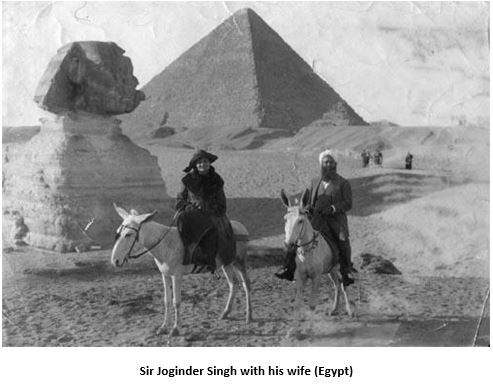JOGINDERA SINGH, SIR

Sir Jogindera Singh (25.5.1877 – 3.12.1946), son of Sirdar Jawala Singh, was born at village Rasulpur (district Amritsar). His grandfather owned a Jagir of thousands of acre of land in Oudh. Maharaja Ranjit Singh had given this Jagir to him for his services as a soldier. Sir Jogindera Singh inherited his share of the Jagir. Sir Jogindera Singh was well educated and had a good command over English language. In 1911, he was appointed as the Home Minister of the Patiala State. In 1926, he was nominated as a member of the Punjab Legislative Council. From 1926 to 1937 he was minister of agriculture and public works in the Punjab. In 1936, he and Sunder Singh Majithia founded the Khalsa national Party and contested 1937 elections. They won a large number of the Sikh seats. He was always pro-British in his attitude. The British had granted him the title of Sir in 1929. In 1942, when Cripps Commission visited India, he was one of the four Sikh leaders who presented the Sikh Case before it. The same year, he was nominated as a member of the Executive Council of the Viceroy. For some time he served as the Pro-Vice Chancellor of the Delhi University too. He served on several Committees of the government. He was a member of all the major Sikh committees during his time. He presided over the Sikh Educational Conference for four times. He died at Montgomery in 1946. Sir Jogindera Singh wrote several books including: Thus Spake Baba Nanak, The Sikh Ceremonies, Sikhism Today and Tomorrow etc. A London publisher had published his books Nur Jahan and Nasrin. He was also the editor of East and West and Khalsa Review for some time. He wrote several articles for The Tribune and The Statesman too. He died at Iqbal Nagar (district Montgomery, now Sahiwal, Pakistan).
(Dr. Harjinder Singh Dilgeer)